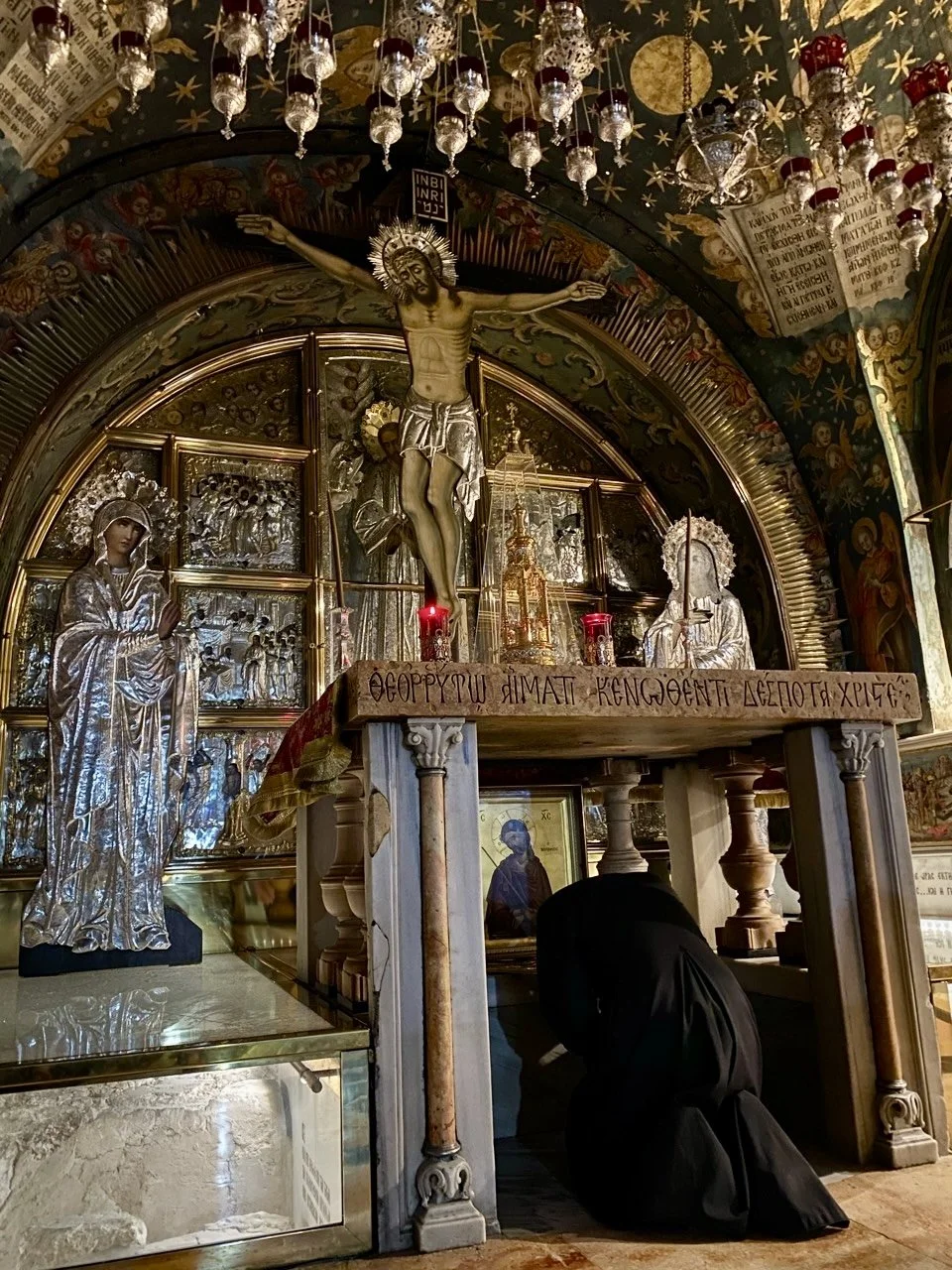Who is the Good Samaritan?
So sometimes my mind tends to wander when I'm in the middle of doing things. I don't know if you've had the experience, like when you're out with a friend and as they're talking to you… and it’s the same topic that they always dwell on… and your mind just starts wandering.
So I have confession... sometimes when I hear some of Jesus' parable, like the one today of the Good Samaritan, I find it difficult to listen attentively. I mean we've probably heard it like a hundreds of times and perhaps we can feel that we got the message. And so if you’re like me, there's a temptation to tune it out. "Ok Ok, I got it, Jesus is saying, we need to go out and be kind, or help one another."
But I want to challenge you today, to see much deeper than that. To allow the Holy Spirit to help you to receive the words.. that are inspired by the Holy Spirit himself. If we don't, if we don't try to listen to the Holy Spirit every time we hear scripture, we may just miss the infinite richness that is there. There's so much more to the parable of the Good Samaritan than simply, "Be nice and help your neighbor." I’ll just want touch upon two truths from this parable today…
And so, I’d like to begin by asking you a question: "Who is the Good Samaritan?"
Who is he? Is he you? Is he me?
If you were listening closely, after the parable, Jesus commands us at the end, "Go and do likewise." His command was for us to "go" and be like the Good Samaritan. Jesus is not saying that you and I are the Good Samaritan, but he’s saying we should be like Him. So "Who is the Good Samaritan?"
The Church Fathers, like St. Augustine, understood that the Good Samaritan is actually Christ! It is Christ who sees the man on the side of the road, and when everyone else passes him by on the other side, it is Christ, the Samaritan traveler, the foreign traveler, who is not from around these parts, who lowers himself and bends down to help the man up.
And who is this man? Jesus is pretty vague. He just says, “A man fell victim to robbers”, it could be any “man”… in fact it could be every “man”… This man who’s stripped, beaten down and left half-dead… that’s you and me… that’s us. It’s humanity, it’s human nature. We are the ones that fell victim. And what has robbed us of all that we had? SIN… sin robs us of what God wants to give us. It is sin that has left humanity half-dead.
And in our sinfulness, in our woundedness, Christ bends down and anoints us with oil and pours wine over our wounds.
And so the first truth that we can learn from this parable is this: Christ never, never, ever avoids us. He never passes on the opposite side because of our sins. Whenever I talk with teenagers or youth about God’s mercy and their sins, I often tell them, “When you were committing that sin, Jesus was there, He’s always been there.” And then I ask them, “What do you think Jesus was trying to say to you in that moment when you were falling into sin?”
And more often than not, they say, “He’s probably disappointed in me” or “He says: how could you let this happen again?”
But that is not the Good Samaritan, that’s not Christ. The Good Samaritan sees the man beaten down and wounded and he is “moved with compassion at the sight.” He doesn’t see the man wounded on the ground and say, “I’m disappointed in you that you allowed those robbers to hurt you.” In our sin, Jesus looks at you and me and he says, “I see what your sin is doing to you. I see how your sin is hurting you, I’m sorry that this happening to you. I want to heal you of that hurt, of that sin. Let me pour oil and wine over your wounds.” But Christ doesn’t use just any oil… He says, “Let me anoint you with the healing power of the Holy Spirit in Baptism and Confirmation, let me pour not just any wine, but wine that becomes my own Blood so that your wounds may be washed clean of any impurities by my Blood in the Eucharist. And then let me lift you up and carry you to the inn, let me carry you into the Church. There you will be attended to. It is here that you will find rest. It is here that you can begin to recover from your wounds. And it is to the Church that he says, “Take care of him. If you spend more than what I have given you, I shall repay you on my way back.”
The Church is not a place of the perfect and healthy, it is the place of sinners and the wounded who are in need of God’s healing grace. Or as Pope Francis says, “the Church is a field hospital.”
Realize now when Jesus says, “Go and do likewise” that it means much much more than “be nice and help your neighbor.” He is saying, like in other places in the Gospel, “Go and love like I love.” “Be concerned not only with manners and courtesy, but be concerned for their entire wellbeing, for not only their body but also their soul.” The wound of sin is so much worse than any wound a knife can make.
But now here is the second truth I want to make: It is Christ who we care for… He says, “Go and do likewise.” Not so that we simply go out and care for one another. There’s more. Because Christ is not only the Good Samaritan… but Christ is also the man stripped and beaten down. He is the one that falls victim to robbers. He has taken our sins onto himself.
In Matthew, Jesus says, “Whatever you do to the least of these, you do to me.” Christ, the Good Samaritan, attends to our wounds and when we have been healed and we go out, but also realize that the ones whom we help and serve are not only our brothers and sisters, but it is Christ himself in the poor, the hungry, the abused, the imprisoned.
Praise God, that here at Most Holy Trinity we have the St. Thomas Center, we have the resale store, we have prison ministry. Christ is here at your doorsteps, instead of spending all your vacation on the beach or in the pool, take some time this summer with Christ in the poor.
Christ comes to you today in the Church as the Good Samaritan, healing your wounds and lifting you up on your feet. Receive his grace, receive his care. And then go out there and meet Him in your neighbors who are wounded and beaten down by sin. “Go and do likewise.”






